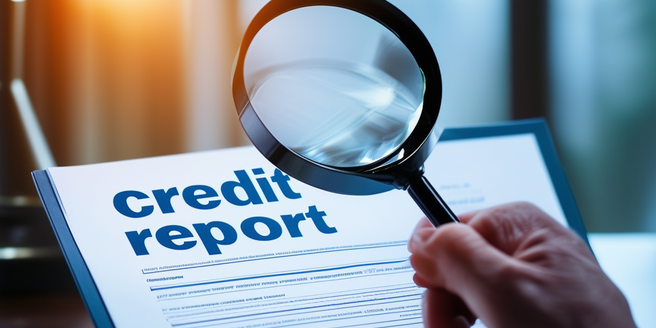Understanding the Basics: What Is a Credit Report?
A credit report is a detailed record of a person’s credit history. Moreover, it can be requested by individuals to keep track of their financial standing and monitor any fraudulent activities. It is often considered as a financial report card by potential lenders. Compiled by credit bureaus, it encompasses information about credit cards, loans, repayment behavior, and financial status. Banks and other lenders use credit reports to assess whether you’re a good candidate for a loan or credit card. The report helps them evaluate the risk and decide the interest rate they will offer you. A bad credit report can lead to being denied credit or offered high interest rates.
The Impact of Credit Reports on Your Financial Health
Credit reports are essential in determining your financial health. They heavily influence the terms and conditions of any loans you apply for, including the interest rate. Along with lenders, potential landlords and employers may also request to see your credit report to assess your financial stability. Furthermore, they can indicate if you’ve been responsible in managing your previous debts. Having a good credit report can lead to lower interest rates, saving you thousands of dollars over the course of a mortgage, for example. Conversely, a poor credit report might limit your ability to secure loans or result in higher interest rates.
Common Errors on Credit Reports and How to Spot Them
Errors in credit reports can have detrimental effects and are more common than you may think. It’s crucial to be vigilant because even a minor discrepancy can cause a significant dip in your credit rating. Due to these potential issues, many individuals choose to use credit monitoring services that alert them to any changes made to their credit report. Mistaken identity, outdated information, or incorrect account details can lead to reduced credit scores. Regularly reviewing your report helps in spotting inconsistencies, such as accounts that don’t belong to you, inaccurate personal information, or incorrectly listed late payments. Reporting these discrepancies to the credit bureau promptly is key to maintaining accurate credit reports.
Protecting Your Identity: Credit Reports as a Safety Measure
A credit report provides a detailed overview of your credit history, serving as an excellent tool for identity theft detection due to its capability to flag unauthorized accounts, purchases, or credit applications. This report also provides a snapshot of your financial stability, enabling you to regularly monitor actions under your name for authenticity.
Routine monitoring enables early detection of discrepancies, allowing for expedited reporting of potential fraudulent activities to limit damage to your credit score. Swift action decreases the impact of these illicit activities, making recovery less stressful.
By proactively monitoring your credit report, you safeguard your financial wellbeing and creditworthiness. Remember, identity theft doesn’t only damage your monetary assets but also your reputation with financial institutions and potential lenders. Hence, routinely inspecting your credit report ensures a healthier financial future and a smoother process in case of identity theft.
How Often Should You Check Your Credit Report?
Credit experts globally advise meticulously reviewing your credit report at least once a year, serving as a critical step in maintaining financial health. These checks ensure accuracy and updated information in your credit report, helping you avoid future potential issues. An annual credit report review is not just about confirming data accuracy but also a reflection of your creditworthiness, impacting your ability to secure loans, mortgages, and credit cards.
Moreover, these checks provide a chance to spot and rectify any discrepancies, errors, or potential fraudulent activity that could adversely affect your credit score. For individuals applying for credit soon or suspecting fraudulent activities, more frequent checks may be beneficial. Consistent monitoring can detect suspicious behaviors and resolve them promptly. Ultimately, ongoing checks on credit reports play a crucial role in financial health upkeep.
Steps to Take If You Find Inconsistencies in Your Credit Report
If you find inconsistencies in your credit report, it’s essential to act quickly. Start by disputing the error with the credit bureau. Reach out to them, explain your situation clearly, and articulate your concerns. This usually involves filing a dispute form and providing supporting documents. You can find these forms on the bureau’s website or request them directly. Once the dispute form is submitted, follow up consistently until the error is resolved. It’s also recommended you send a letter to the organization that provided the inaccurate information. Remember, maintaining the accuracy of your credit report is vital to your overall financial health.


